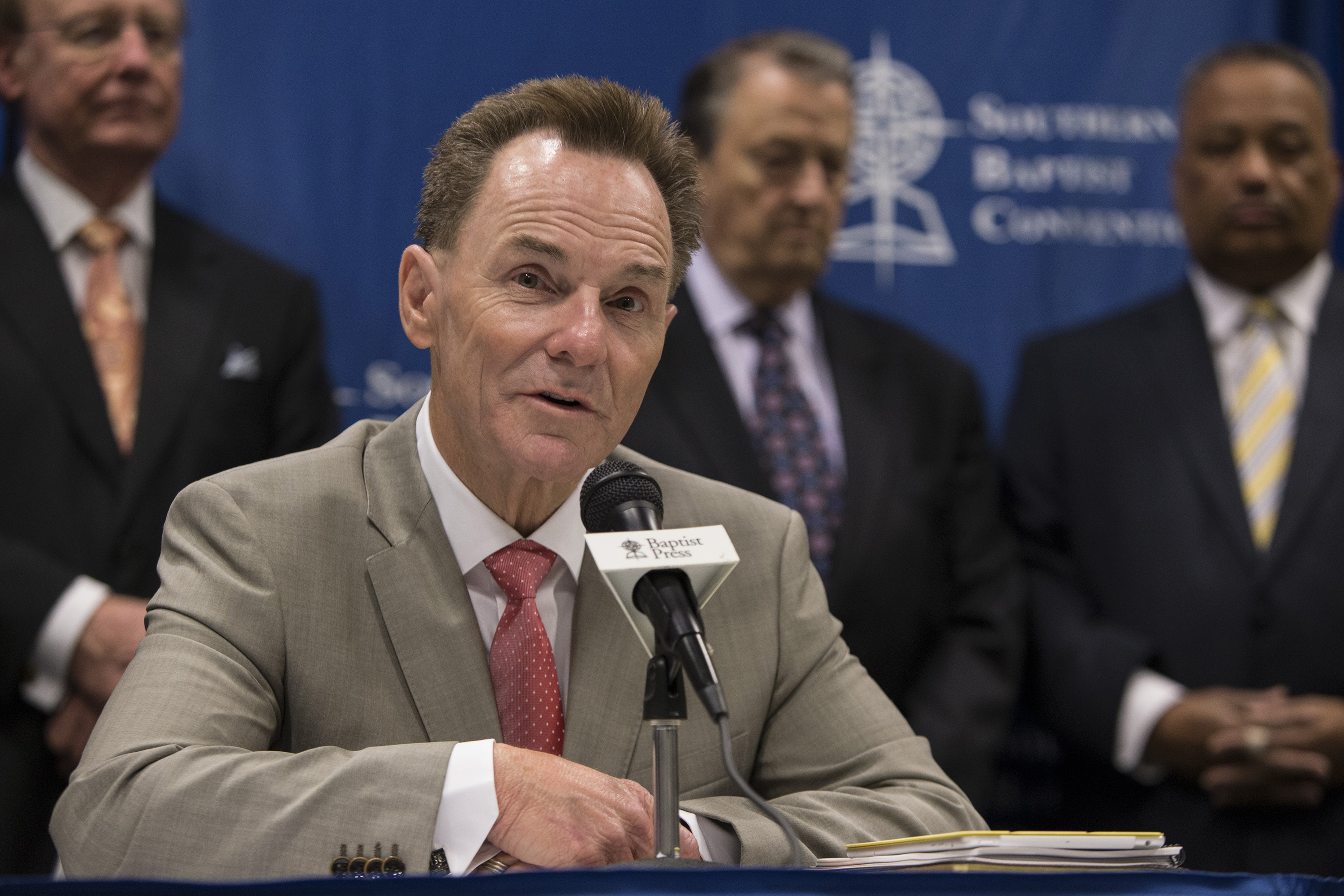
GuideStone’s Spika sees difficult short term financial environment
By BP Staff
DALLAS (BP) – While the Commerce Department reported a decline in the gross domestic product for a second quarter in a row on July 28, one financial expert does not believe a potential recession should be the primary focus of market observers.
David Spika, chief investment officer for Guidestone, says the real key is how consumers are faring during times of financial turbulence.
“We’ve got rapidly rising prices. The interest rates are up. We’re starting to see weakness in the job market. Those are all bad things for consumers,” Spika told Baptist Press.
He believes the Federal Reserve will be forced to continue raising interest rates to counter rising inflation and that will push the economy into a recession.
“We are concerned it’s going to be a difficult six to 12 months for consumers,” he said.
Spika says when churches consider the potential impact, they should prepare for the potential decrease in giving.
“I would expect there would be some pressure on tithes for churches,” Spika said.
He does not believe individuals or churches should count on stimulus packages from the federal government like the ones extended during the pandemic in 2020 and 2021.
Spika encourages churches to go slow if they are in the midst of a building project or considering entering a high-cost financial project.
“If there’s an opportunity to press the pause the button and see through this recession might not be a bad idea,” he recommends.
He says while it may be painful, a recession is often the best thing that can happen in the long run to help lower prices and drive down inflation for consumers.
Wall Street closing higher after shaky start on GDP report
By Ale Veiga/AP
Stocks are closing higher on Wall Street Thursday as investors weighed fresh data showing that the U.S. economy shrank for a second consecutive quarter in the Spring. The data heightened fears that the U.S. economy is already in or heading for a recession, but also stoked optimism that the Fed could temper its aggressive rate rises. The S&P 500, the Dow Jones Industrial Average and the technology-heavy Nasdaq Composite each remain on track to end the week higher. Meta Platforms shares sank after the social media giant said that for the first time ever, its revenue fell last quarter.
Stocks are extending their gains on Wall Street in afternoon trading Thursday after shaking off an early slide following a report that signaled the U.S. economy is either already in a recession or well on its way.
The S&P 500 was up 1.1 percent as of 2:26 p.m. Eastern. The Dow Jones Industrial Average was up 1.1 percent and the Nasdaq was 0.8 percent higher. Smaller company stocks also rose, lifting the Russell 2000 by 0.9 percent.
The indexes fell in the early going after the Commerce Department reported that the economy shrank from April through June, contracting at a 0.9 percent annual pace. The latest decline in the gross domestic product — the broadest gauge of the economy — followed a 1.6 percent annual drop from January through March. Consecutive quarters of falling GDP are an informal, though not definitive, indicator of a recession.
The GDP report for last quarter pointed to weakness across the economy. Consumer spending slowed as Americans bought fewer goods. Business investment fell. Inventories tumbled as businesses slowed their restocking of shelves, shedding 2 percentage points from GDP.
The Federal Reserve has made slowing U.S. economic growth in order to tame the highest inflation in 40 years its goal by raising interest rates, most recently on Wednesday (July 27). The latest GDP report, along with other recent weak data, could be giving some investors confidence that the central bank will not have to be as aggressive about hiking rates in the months to come.
“Sometimes bad news is good news,” said Megan Horneman, chief investment officer at Verdence Capital Advisors.
The Fed raised its key short-term interest rate by 0.75 percentage points on Wednesday, bringing it to the highest level since 2018. The move sparked a broad market rally led by technology stocks that helped give the Nasdaq its biggest gain in over two years. The major indexes are now all on pace for a weekly gain, extending Wall Street’s strong July rally.
Technology stocks and retailers, restaurant chains and other companies that rely on direct consumer spending helped lift the S&P 500 Thursday. Microsoft rose 2.8 percent, Target gained 3.2 percent and McDonald’s was 1.4 percent higher.
Communication services stocks were the only laggards. Meta Platforms fell 7 percent after the social media giant said its revenue fell last quarter for the first time ever, dragged down by a drop in ad spending.
In a busy week of corporate earnings reports investors have focused on what companies are saying about inflation and the impact rising interest rates are having on their business and customers.
Markets were spooked Monday after retail giant Walmart warned that its profits are being hurt by rising prices for food and gas, which are forcing shoppers to cut back on more profitable discretionary items such as clothing.
Stanley Black & Decker slumped 14.4 percent Thursday after the tool maker’s second-quarter results fell short of Wall Street’s estimates. The company noted that demand significantly slowed in May and June.
Oshkosh fell 6.3 percent after the company reported weaker-than-expected quarterly results and lowered its 2022 profit guidance, citing lingering supply chain disruptions and inflation.
Meanwhile, Spirit Airlines shares rose 4.1 percent after JetBlue said it agreed to buy the budget airline for $3.8 billion to create the nation’s fifth largest airline. The agreement, which still requires regulator and shareholder approval, comes a day after Spirit’s attempt to merge with Frontier Airlines fell apart.
Bond yields were broadly lower. The two-year Treasury yield, which tends to move with expectations for the Fed, fell to 2.88 percent from 2.98 percent late Wednesday. The 10-year yield, which influences mortgage rates, fell to 2.69 percent from 2.74 percent.
From The Associated Press. May not be republished.






















